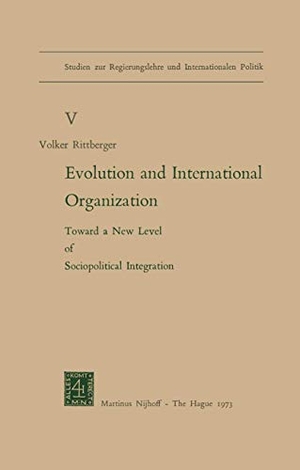Für statistische Zwecke und um bestmögliche Funktionalität zu bieten, speichert diese Website Cookies auf Ihrem Gerät. Das Speichern von Cookies kann in den Browser-Einstellungen deaktiviert werden. Wenn Sie die Website weiter nutzen, stimmen Sie der Verwendung von Cookies zu.
Cookie akzeptieren
V. Rittberger
Evolution and International Organization
- Springer Netherlands
- 1974
- Taschenbuch
- 136 Seiten
- ISBN 9789024715633
unlike the historical-descriptive or legalistic approaches still pervading the majority of publications on international organization, has an implicit (empirical-) theoretical orientation. As a concomitant development, Yalem notes an increasing methodological 6 sophistication among some students of international organization. However, except for some favorable comments on the evolving theory of international community formation, Yalem does not evaluate the contribution of the empirical-theory-cum methodology literature to the study of international organization. More recently, Riggs and his associates (1970) and Alger (1960-70; 1970) have taken it upon themselves to do just this. The analysis of the impact of bthavioralism on the study of the United Nations system by Robert
Mehr
Weniger
zzgl. Versand
in Kürze